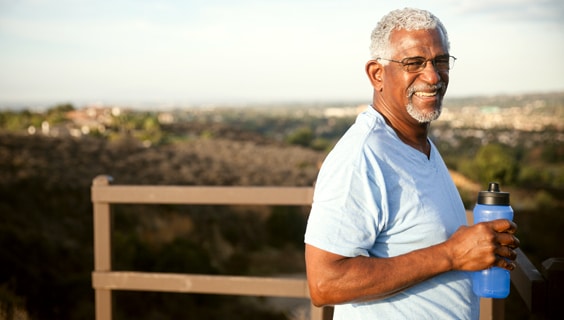
People rarely talk about bladder health, but everyone is affected by it. Located in the lower abdomen, the bladder is a hollow organ, much like a balloon, that stores urine. Urine contains waste and extra fluid left over after the body takes what it needs from what we eat and drink. Each day, adults pass about a quart and a half of urine through the bladder and out of the body.
As people get older, the bladder changes. The elastic bladder tissue may toughen and become less stretchy. A less flexible bladder cannot hold as much urine as before and might make you go to the bathroom more often. The bladder wall and pelvic floor muscles may weaken, making it harder to empty the bladder fully and causing urine to leak.
While you can’t control everything that affects your bladder, here are 15 steps you can take to keep it as healthy as possible:
- Use the bathroom often and when needed.Try to urinate at least once every 3 to 4 hours. Holding urine in your bladder for too long can weaken your bladder muscles and make a bladder infection more likely.
- Be in a relaxed position while urinating.Relaxing the muscles around the bladder will make it easier to empty the bladder. For women, hovering over the toilet seat may make it hard to relax, so it is best to sit on the toilet seat.
- Take enough time to fully empty the bladder when urinating. Rushing when you urinate may not allow you to fully empty the bladder. If urine stays in the bladder too long, it can make a bladder infection more likely.
- Wipe from front to back after using the toilet. Women should wipe from front to back to keep gut bacteria from getting into the urethra. This step is most important after a bowel movement.
- Urinate after sex. Sexual activity can move bacteria from the bowel or vaginal cavity to the urethral opening. Both women and men should urinate shortly after sex to lower the risk of infection.
To learn about more tips to keep your bladder healthy, from the National Institute on Aging, CLICK HERE.

